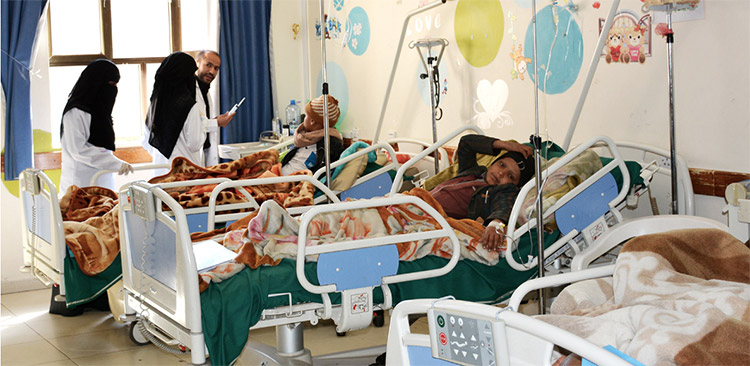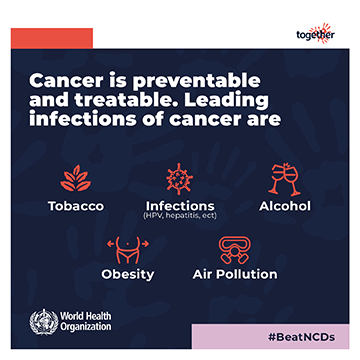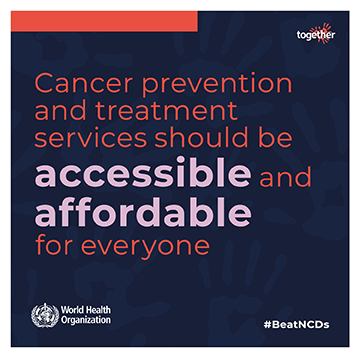
4 February 2020 – On this day, we are spelling out the need to step up cancer services to save the lives of millions. Worldwide, 9.6 million people die from cancer every year.
In the Eastern Mediterranean Region, cancer is the fourth leading cause of death. The rate is expected to almost double in the next two decades, from an estimated 676 500 new cases in 2018 to nearly 1.35 million in 2040. This is the highest relative increase among all WHO regions.
Still, progress is possible if action is taken by governments, communities, industry, development partners and donors to step up cancer services. More than one third of cancer cases can be prevented and, another third can be cured if detected early and treated properly. If no additional action is taken, millions of new cases and premature deaths will be recorded in the Region over the next decade and will compromise our ability to reach Sustainable Development Goals target 3.4 to reduce premature deaths from noncommunicable diseases by one third by 2030.
WHO and the International Agency for Research on Cancer (IARC) are releasing 2 coordinated reports on World Cancer Day (4 February), in response to government calls for more research into the scope and potential policies and programmes to improve cancer control. WHO highlights a wide range of proven interventions to prevent new cancer cases. These include controlling tobacco use (responsible for 25% of cancer deaths), vaccinating against hepatitis B to prevent liver cancer, eliminating cervical cancer by vaccinating against human papillomavirus, screening and treatment, implementing high-impact cancer management interventions that bring value for money and ensuring access to palliative care, including pain relief.
World Cancer Day is an opportunity for all of us to show support, raise our collective voice, take personal action and press our governments to do more. Make this day and beyond all about your story and your commitment to affect and reduce the cancer burden, because progress is possible if we all take collective action.
- Governments to set policies and create healthy environments and access to quality health services for all without financial hardship.
- Communities to mobilize action, individuals to make healthy choices and to participate in health care services.
- Industry to promote access and innovation.
- Development partners and donors to make strategic investments.




Related links
World Cancer Report: Cancer Research for Cancer Prevention
Report on Cancer: Setting priorities, investing wisely and providing care for all


